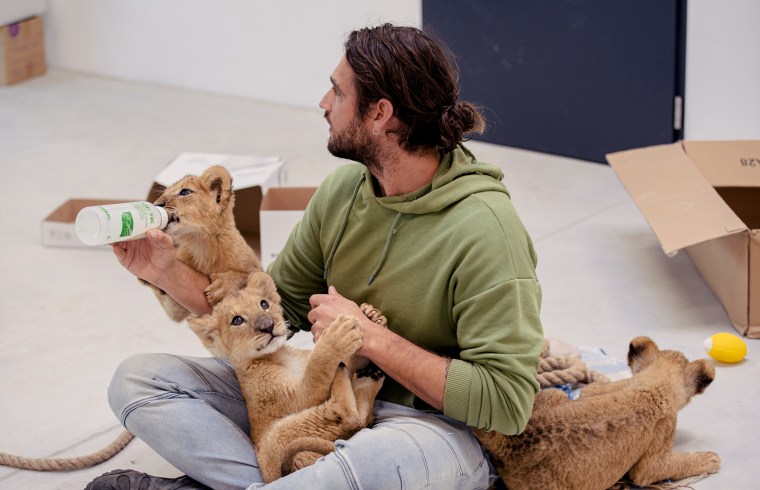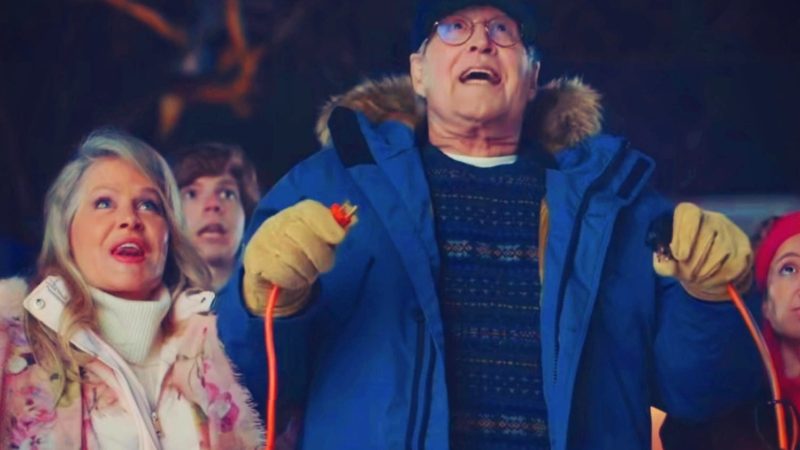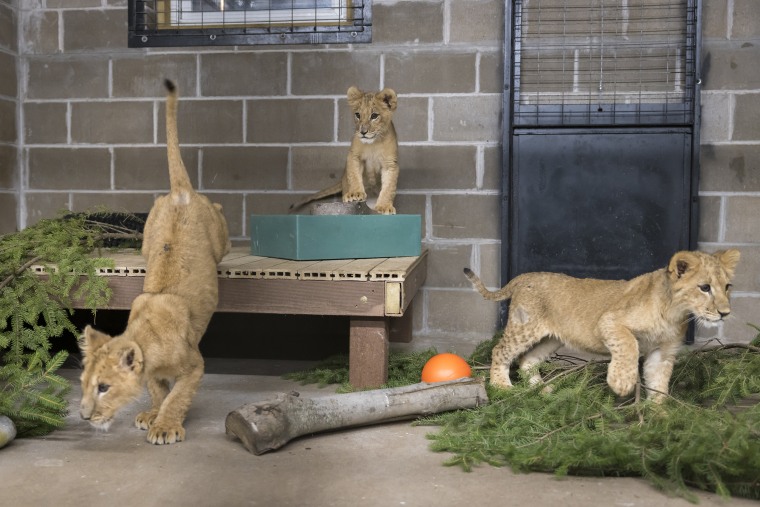
Four lion cubs, born in breeding facilities in Ukraine and orphaned during the war, have embarked on a journey to a new life in the United States. The three female cubs—Stefania, Lesya, and Prada—and their male counterpart, Taras, were evacuated amidst bombings and drone attacks, finally finding refuge in Minnesota at the Wildcat Sanctuary, sponsored by the International Fund for Animal Welfare (IFAW).
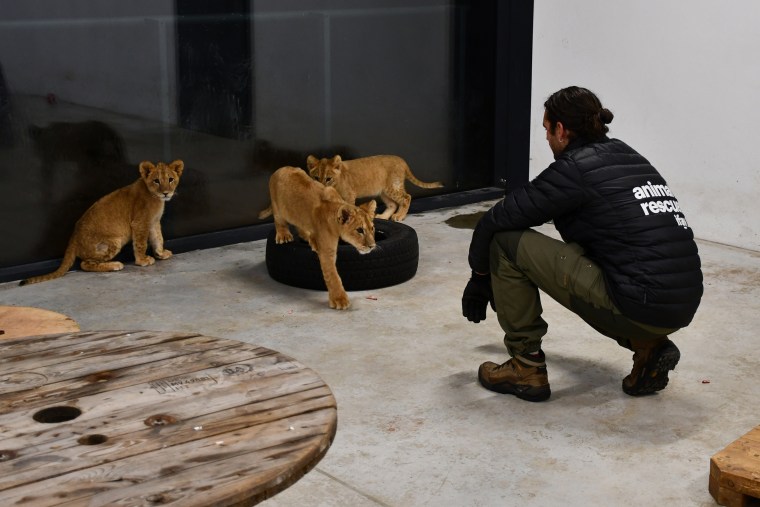
The cubs—Prada, the oldest from Kyiv, and the others from Odesa—arrived in the U.S. on November 29 after a nine-hour flight from Poland to Chicago, followed by an eight-hour road trip to the sanctuary. IFAW’s sponsorship covers the cubs’ rescue, care, and transport, with the Wildcat Sanctuary committed to providing lifetime care, totaling $10,000 per year per cub for 20 years.
Meredith Whitney, IFAW’s wildlife rescue program manager, noted that the cubs are thriving in their new environment, exhibiting good health and distinct personalities. The sanctuary plans a comprehensive veterinary evaluation, including X-rays and bloodwork, once the cubs fully settle in.
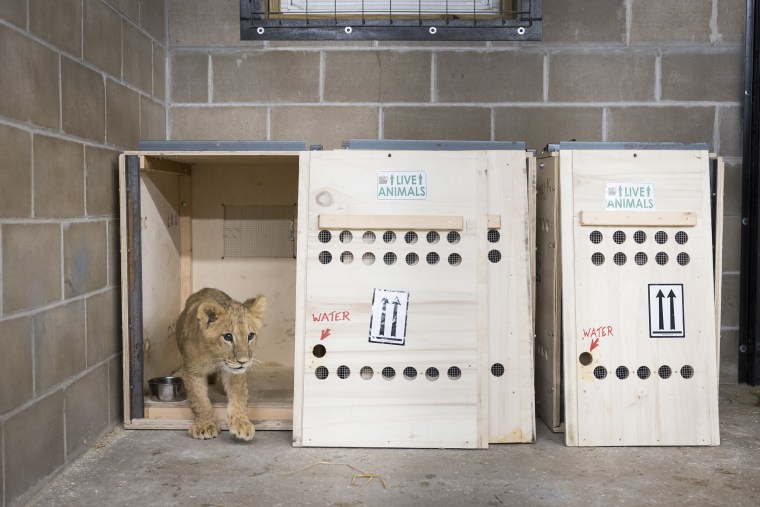
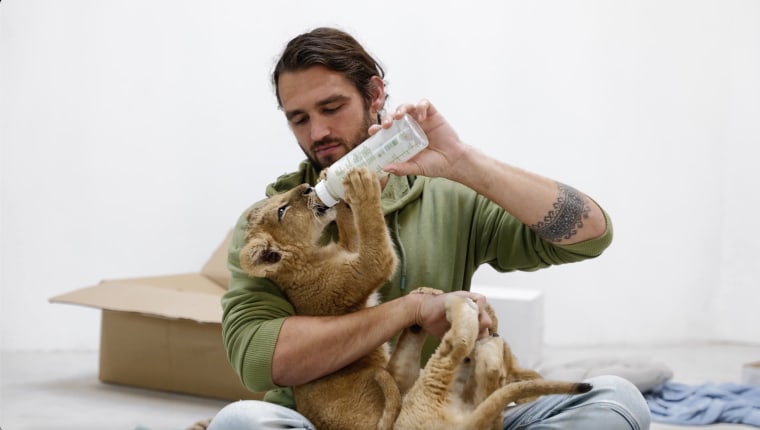
Shannon Walajtys, director of disaster response and risk reduction at IFAW, emphasizes that their work extends beyond individual rescues, addressing the larger issue of illegal breeding and wildlife crime. The global community is urged to refrain from supporting the exotic pet trade, contributing to conservation efforts and fostering awareness to combat this pervasive challenge.
The rescued lion cubs—Ember and Ash in the U.S. and Stefania, Lesya, Prada, and Taras in Minnesota—serve as symbols of resilience and hope, inspiring continued efforts toward wildlife conservation and protection.
